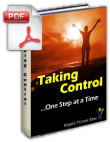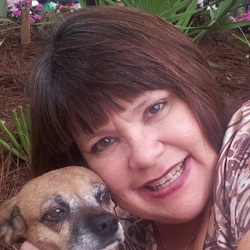 Resentment or grudges do no harm to the person against whom you hold these feelings but every day and every night of your life, they are eating at you. ~ Norman Vincent Peale
Resentment or grudges do no harm to the person against whom you hold these feelings but every day and every night of your life, they are eating at you. ~ Norman Vincent Peale
Getting a hold of our emotions is a huge part of the self-growth process. A good many of us might believe, or have believed, that we are not in control of our emotions at all.
That is far from the truth.
There is a way to transform your thoughts (emotions) so that they can better serve you and your purpose:
Step 1: Be Aware of It
First, you must recognize the emotion. So let’s say you are in a car, and someone cuts in front of you. You start to shout some not-so-nice words. At that moment, stop and become aware of the emotion that you are feeling. Where is it located in your body? How does your body react? Just being aware of it is the first step.
Step 2: Name It
Now it is time to name the particular emotion. Using the previous example, was it truly anger? Or was it fear? Labeling it as soon as it arises is the only way you can begin to analyze it.
Step 3: Accept It
Of all the steps to mastering your emotions, this might be the hardest step. This requires you to accept responsibility for that particular emotion. It will be very easy during this step to deflect responsibility to the “person that cut in front of you.” What you have to realize is that it is YOU who has chosen to feel that particular emotion, whatever it was.
When you allow others to control your emotions, they are taking your power away from you. When you deflect or blame others, you are saying that they have the power to make you feel a certain way. No one can make anyone else FEEL anything. It’s simply impossible. Take that responsibility back and be accountable for your own emotions.
Step 4: It Might Have a Different Meaning
Here is another example: You tell your child to do something, and she refuses to listen. You tell her over and over again, three or four times, and she still doesn’t do it. You start to get angry and shout, telling her to listen to you and you get really frustrated, even maybe angry.
Is it really anger that you are feeling? Or are you feeling disrespected? Frustrated? Annoyed? Is the feeling of being disrespected manifesting anger?
Give thought to the possibility that it could be something deeper than the surface emotion and explore that instead.
Step 5: Allow It
Any emotion is a message from your mind to your body or spirit telling you to pay attention to something. Emotions are never ever wrong; the action that follows the emotion maybe wrong.
Whatever you feel in life has a purpose. Allow it to teach you something about yourself, or a signal for you to take action.
Keep in mind, too, that the emotion you named might be a response to past experiences. Examine that possibility and try to figure out what you are supposed to learn.
Step 6: Learn from It
When you have named the particular emotion, ask yourself what is it teaching you? What is your mind telling your body or spirit?
Another example: You are walking down an empty street, and you start to feel a little nervous or uneasy, maybe a little fearful. Is that emotion teaching you to feel fear, or maybe is it teaching you to be aware of your surroundings? Maybe it’s telling you to look around, and decide if there is anything to be fearful about? You see a lot of people down the block a bit, you see a police car, you see cameras, there are open shops, maybe that emotion was just telling you to be more aware of the world around you.
Step 7: Change It
If the emotion you labeled is working against you, put into practice Pattern Interrupt. You can stop the process that is leading you astray, then concentrate on something that is going to propel you forward.
In addition to the Pattern Interrupt technique, try thinking of a past experience where you were successful at something. For example, let’s say you are already feeling anxious about an upcoming event. You are fearful that you will eat the wrong foods or you are scared to tell the hosts that you eat differently now. Try to think of a situation from the past where you were strong and stood your ground. Remember how you felt when you came home and were proud of yourself. Remember how it felt to see a loss or goose egg on the scale because you stayed clean. Remember the feelings of relief, confidence and accomplishment.
Changing your thoughts will change your state of being from a negative one to a positive. Getting to a positive space before you arrive at the event will put you in a calmer and more confident state of being. You will walk into the situation armed with a past experience that turned out well.
It is truly important to master our emotions when we are working on transforming our minds, bodies and spirits.
The key to mastering our emotions is to remember that it is our reaction to situations, people, circumstances and things that we can control, not the event itself.















